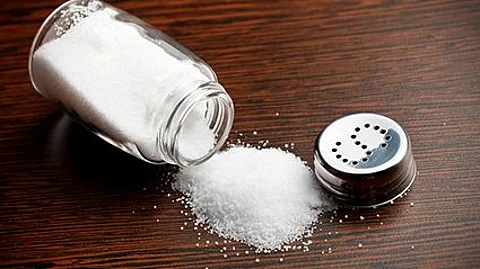THURSDAY, Nov. 16, 2023 (HealthDay News) -- Sodium reduction in the diet lowers blood pressure (BP), with the effect generally consistent across subgroups, according to a study published online Nov. 11 in the Journal of the American Medical Association to coincide with the American Heart Association Scientific Sessions 2023, held from Nov. 11 to 13 in Philadelphia.
Deepak K. Gupta, M.D., from the Vanderbilt University Medical Center in Nashville, Tennessee, and colleagues examined the distribution of within-individual BP response to dietary sodium. The study included prospectively allocated diet order with crossover in 213 community-based individuals (aged 50 to 75 years) who attended a baseline visit while consuming their usual diet and then completed one-week high- and low-sodium diets.
The researchers found that between high- and low-sodium diets, the median within-individual change in mean arterial pressure was 4 mm Hg, with no significant difference noted by hypertension status. In 73.4 percent of individuals, the low-sodium diet induced a decline in mean arterial pressure compared with the high-sodium diet. Overall, 46 percent of individuals were classified as "salt sensitive" based on a commonly used threshold of a 5 mm Hg or greater decline in mean arterial pressure between a high- and low-sodium diet. The mean systolic BP difference between individuals allocated to a high- versus low-sodium diet was 8 mm Hg at the end of the first dietary intervention week, which was mostly similar across subgroups. Adverse events were reported by 9.9 and 8.0 percent of individuals while consuming high- and low-sodium diets, respectively, and were mild.
"Sodium reduction significantly lowered BP in the majority of middle-aged to elderly adults in this study," the authors write.
Abstract/Full Text
More Information


